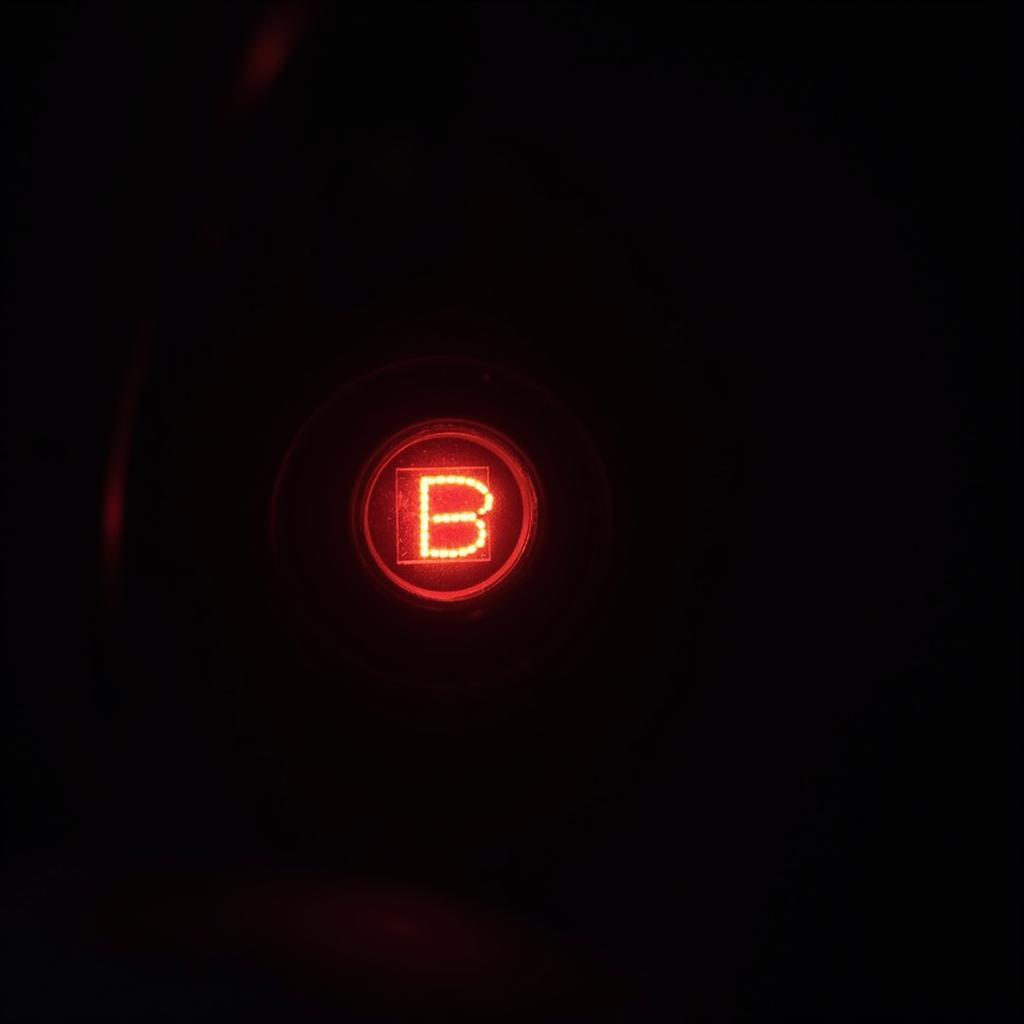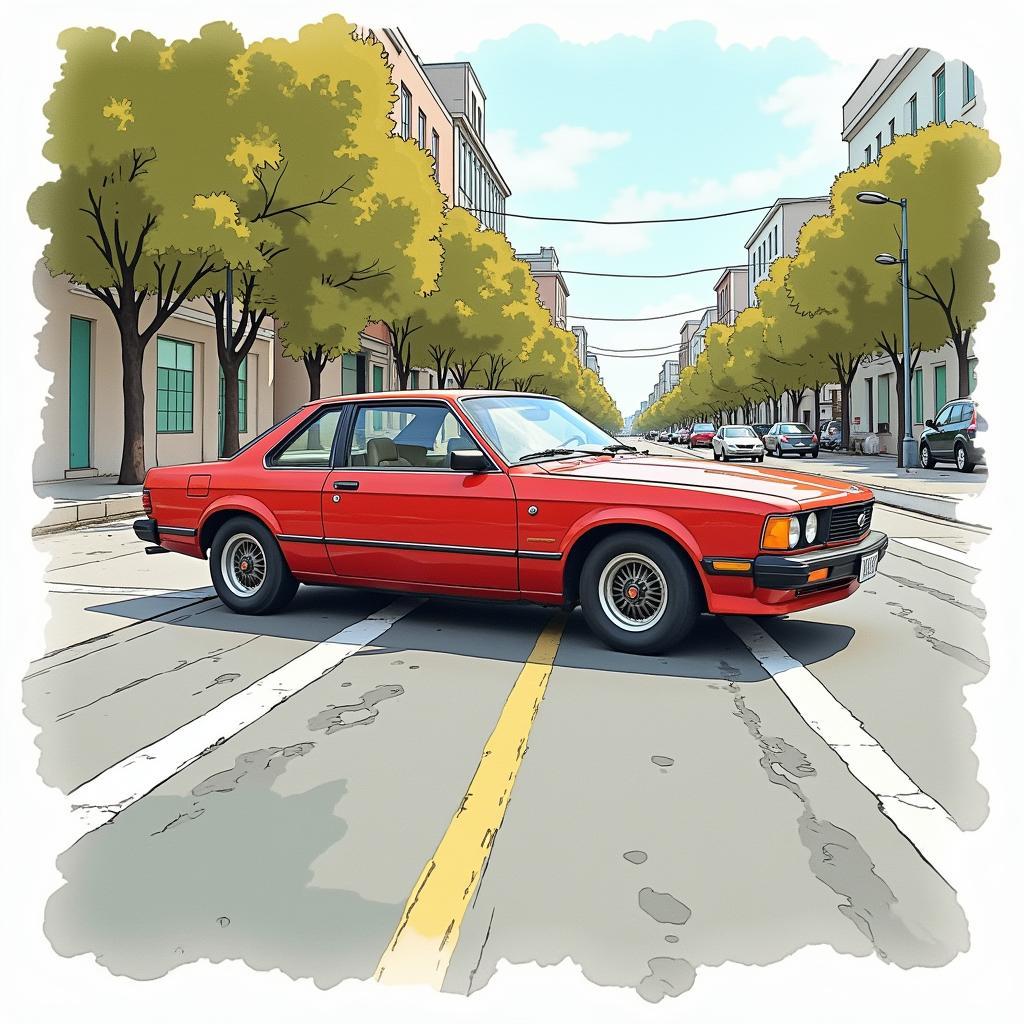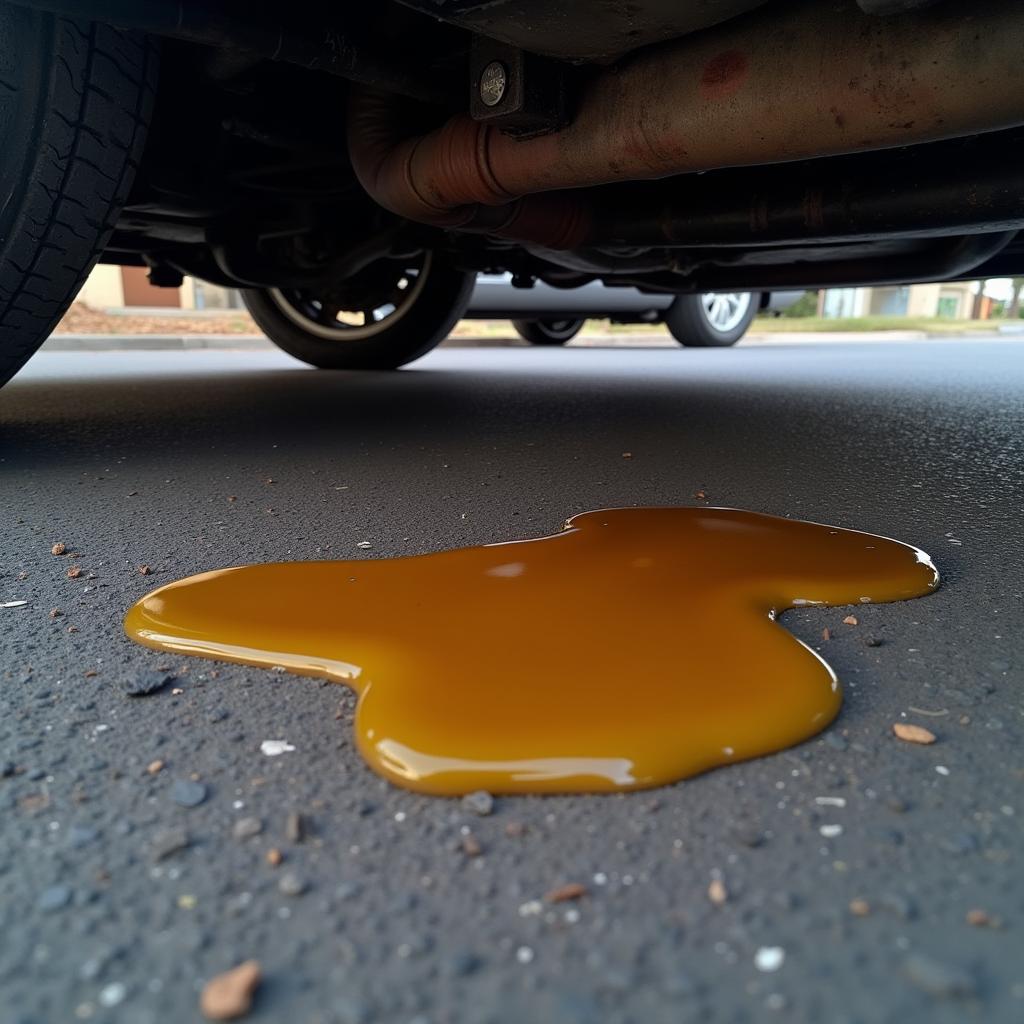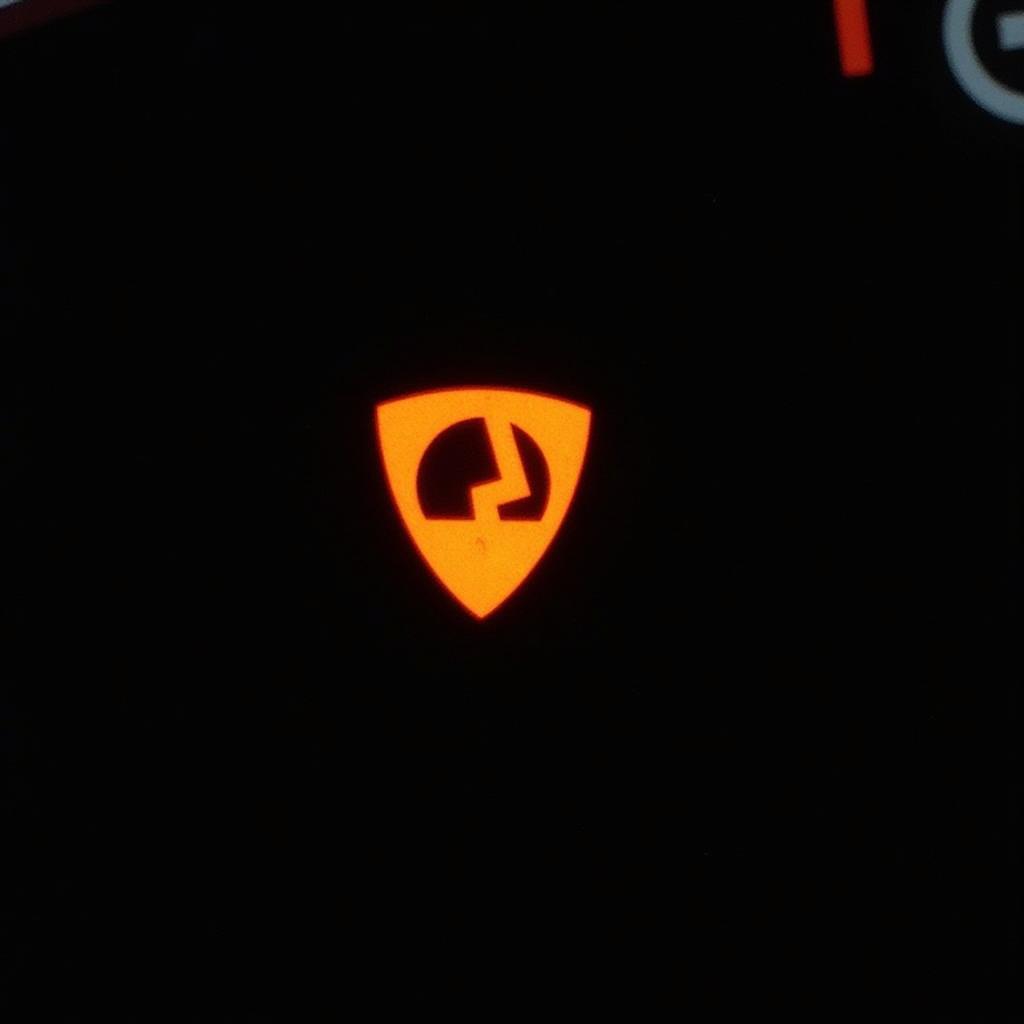Your car’s braking system is its most crucial safety feature. Ignoring even minor issues can have disastrous consequences. As a specialist in automotive electrical engineering, with expertise in remote diagnostics, programming, and software installation, I’ve seen firsthand the results of neglecting brake maintenance. Here are eight warning signs you should never ignore:
1. The Dreaded Brake Light – Why it’s Your Car’s SOS Signal
That glowing brake light on your dashboard isn’t a suggestion; it’s a blaring alarm. While it could indicate something as simple as a need to engage your parking brake, it can also signal a serious issue with your hydraulic system, low brake fluid, or even a problem with your ABS (Anti-lock Braking System).
Expert Insight: “Modern cars are equipped with sensors that monitor brake fluid levels and system pressure,” says automotive engineer, John Miller. “When the brake light illuminates, it’s crucial to have the system diagnosed immediately to pinpoint the root cause.”
 Car Dashboard with Brake Warning Light Illuminated
Car Dashboard with Brake Warning Light Illuminated
2. Grinding Noises – When Metal Meets Metal (and It’s Not a Rock Concert)
A grinding sound when you apply the brakes is a surefire sign that your brake pads are worn down and metal is scraping against metal. Continuing to drive in this condition will not only damage your rotors – leading to costly repairs – but significantly compromise your stopping power.
3. Squealing or Screeching Brakes – A High-Pitched Plea for Help
While not always a cause for immediate panic, high-pitched squealing or screeching, especially upon starting your car or lightly braking, is often a sign that your brake pads are wearing thin and need replacing. Many modern vehicles have wear indicators built into the brake pads that emit this noise as a reminder.
4. Vibrations or Pulsating – More Than Just a Bumpy Road
If you feel a pulsing sensation in the brake pedal or a shaking in the steering wheel when you brake, it’s time for a checkup. This often indicates warped rotors, which occur due to excessive heat and friction. Warped rotors reduce braking efficiency and can lead to vibrations throughout the vehicle.
5. Pulling to One Side – A Tug-of-War You Don’t Want to Win
Does your car swerve to one side when you brake? This dangerous situation can be caused by several factors, including a stuck brake caliper, uneven brake pad wear, or a problem with the hydraulic system. Ignoring this issue puts you at risk of losing control of your vehicle, especially in emergency situations.
 Car Pulling to One Side While Braking
Car Pulling to One Side While Braking
6. Spongy or Soft Brake Pedal – A Telltale Sign of Trouble
A brake pedal that feels soft, spongy, or sinks to the floor with little resistance is a major red flag. This typically indicates air in the brake lines, a serious problem that requires immediate attention from a qualified mechanic. Air in the lines compromises the hydraulic pressure needed to engage the brakes effectively.
7. Burning Smell While Driving – Don’t Ignore Your Nose
A strong, acrid odor emanating from your brakes, especially after prolonged or hard braking, suggests overheated brakes. This can happen if the brake calipers are sticking or the brake pads are worn down. Continued driving under these conditions can cause brake fluid to boil, leading to complete brake failure.
kia sportage brake pad warning light
8. Leaking Brake Fluid – The Lifeblood of Your Braking System
Brake fluid is essential for transmitting the force from your foot to the brake calipers, which then apply pressure to the brake pads, stopping the vehicle. If you notice a puddle of fluid under your car, particularly if it’s yellowish or brownish, it could be a brake fluid leak. This requires immediate attention.
 Leaking Brake Fluid Under Car
Leaking Brake Fluid Under Car
What Do 2011 Nissan Altima Brake Warning Lights Mean?
For owners of specific car models, certain warning lights might have unique meanings. For instance, if you’re wondering, “what do 2011 altima nissan altima brake warning lights mean,” it’s crucial to consult your owner’s manual or a qualified mechanic familiar with your vehicle.
The Importance of Proactive Brake Maintenance
Expert Insight: “Regular brake inspections are crucial for your safety and can save you money in the long run,” advises automotive expert, Sarah Jones. “A qualified mechanic can identify potential problems early on and prevent costly repairs.”
Remember, your brakes are your car’s most vital safety feature. Don’t ignore the warning signs. Schedule regular brake inspections and address any issues promptly to ensure your safety and the well-being of others on the road.

